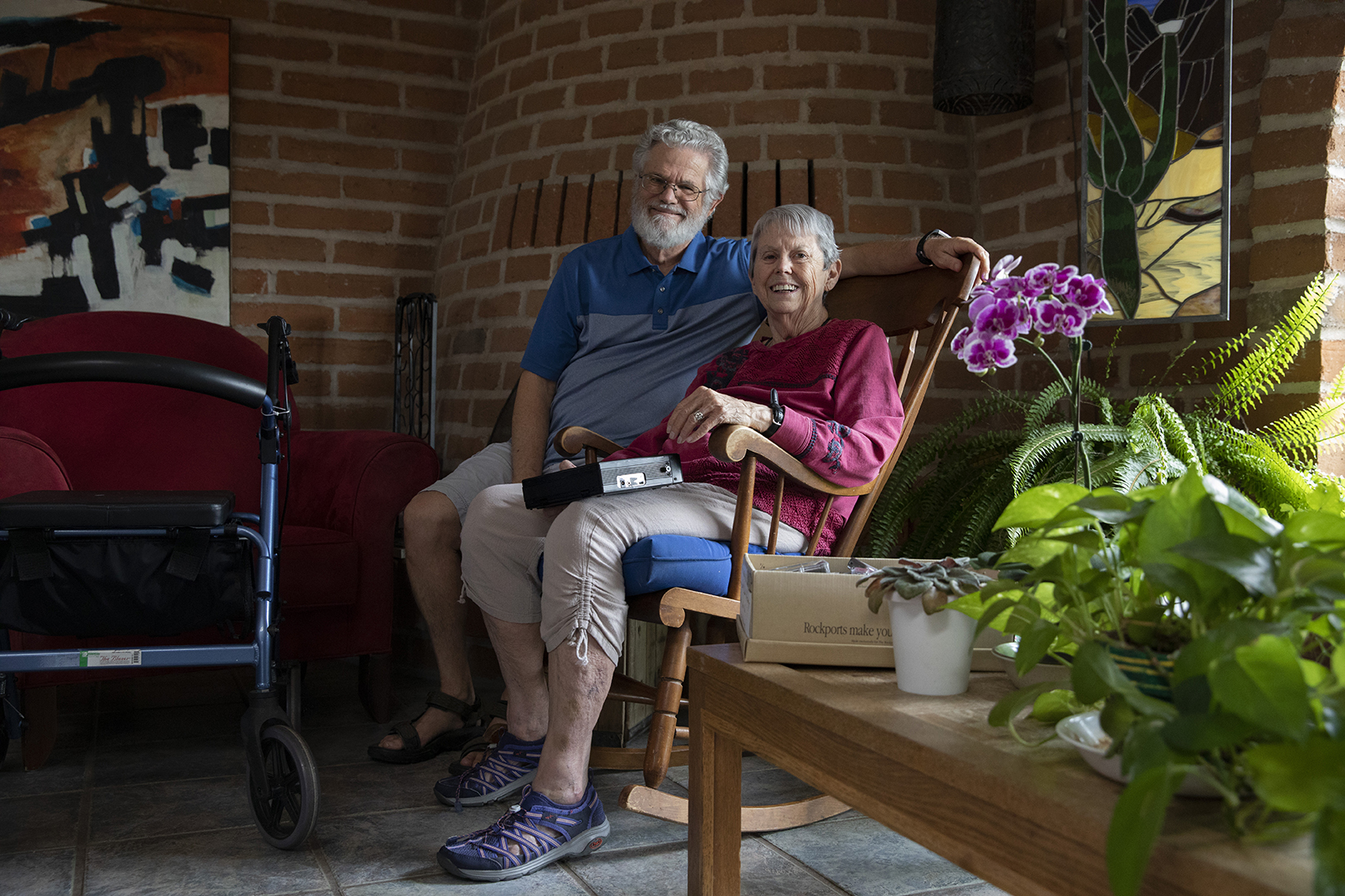AARP Hearing Center

By Miriam Davidson
Fran and David Buss love their home in the desert foothills of Tucson, where they’ve lived for 32 years and hope never to leave.
But as Fran, 77, a historian and author who is partially disabled, has grown more frail, the single-story house needs changes.
The couple are adding two ramps: for the step up to the front door and for the step down to the study, said David, 72, a retired chaplain and his wife’s caregiver.
“Fran uses a walker and manages pretty well, but it’s probably not safe to have even one little step,” he said.
Buss is one of roughly 870,000 family caregivers in Arizona. Nationally, caregivers spend an average of nearly $7,000 a year on related expenses. Many live on fixed incomes, which makes home safety modifications difficult, if not impossible, to afford.
But thanks to AARP, help is on the way.
This year, after an intensive campaign that included AARP volunteers calling lawmakers 20 times a day for three weeks, Arizona enacted a Family Caregiver Grant Program. The $1 million pilot project is designed to help low- and middle-income families afford household improvements, such as ramps or grab bars, so loved ones can safely age in place.
“The costs associated with caregiving are high, and the resources can be hard to find,” said Dana Kennedy, AARP Arizona state director.
Pilot to undergo evaluation
The program, which starts in January, will make money available on a first-come-first-served basis to individuals earning $75,000 a year or less and couples making up to $150,000.
They must be caring for a family member over 18 who needs help with one or more daily tasks.
Caregivers may be reimbursed up to $1,000 per family member under their care for home modifications or assistive technology.
The money can’t be used for daily living costs, regular household repairs and upkeep or for expenses reimbursed by insurance or other sources.
The pilot program will be funded for two years and then be evaluated to determine if it should continue. It will be overseen by the state Department of Economic Security’s Aging and Adult Services division.
Supporters say the modest grants save the state money by keeping people safe at home longer—thereby delaying or preventing the need for more expensive care in taxpayer-funded institutions like nursing homes.
“We will collect data on the initial use, and if it proves to be as successful as we expect, I would like to expand the program,” said state Sen. Heather Carter (R-Phoenix), who cosponsored the bill.
Advocates, including AARP, had backed a caregiver tax credit but supported the change to a caregiver grant program because they believe it will reach more people in need of help, Kennedy said.
Kennedy noted that the state is working with nonprofits that have similar programs on funding options for those who can’t afford the up-front cost of home modifications.
For information about the grant program, please visit https://azcaregiver.org/service/fcrp/; or AARP Arizona at 866-389-5649 or aarpaz@aarp.org.
Miriam Davidson is a writer living in Tucson.































































